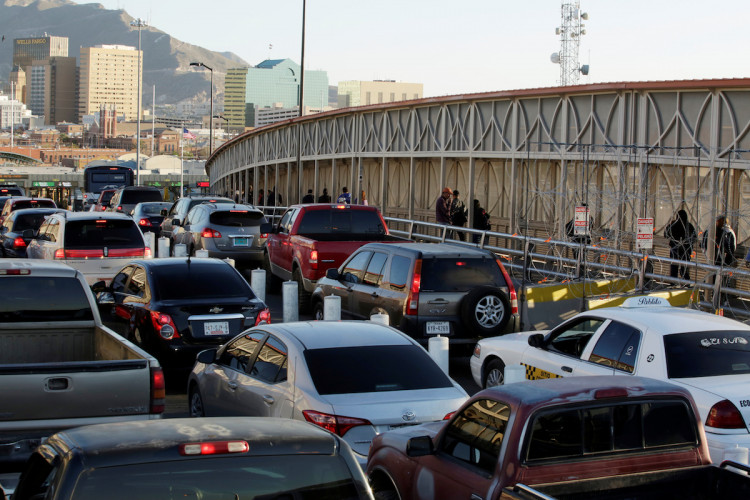Texas' intensified border enforcement under Operation Lone Star is facing scrutiny from civil rights advocates who argue that the state's expanded tactics are resulting in rising deaths among migrants and U.S. citizens alike. The deployment, which includes thousands of Texas National Guard troops, additional Department of Public Safety (DPS) officers, razor wire barriers, and physical deterrents along the Rio Grande, has spurred new concerns over the human toll of these measures.
During a recent seminar hosted by the Washington Office on Latin America (WOLA), Dylan Corbett, executive director of the Hope Border Institute in El Paso, shared data indicating that border enforcement tactics have made high-speed chases in the area "the number one cause of casualties" related to migrant incidents. "Last year, seven people died, and this year there have been serious injuries and fatalities," Corbett said, describing how these chases often involve DPS troopers pursuing vehicles suspected of migrant smuggling, resulting in crashes and injuries affecting both migrants and citizens.
Governor Greg Abbott launched Operation Lone Star in 2021, expressing frustration with federal immigration policy and what he saw as a lack of effective federal action at the border. Since its inception, the operation has cost Texas roughly $11 billion, with an additional $3 billion up for consideration. The initiative includes not only traditional law enforcement but also game wardens and highway patrol officers, who are increasingly tasked with managing migration-related incidents. "The U.S.-Mexico border is 2,000 miles long, and Texas has effectively taken control of over 1,000 miles," Corbett said, highlighting the significant shift in immigration enforcement from federal to state control.
Civil rights advocates argue that the combination of physical barriers, such as razor wire, and heightened militarization is pushing migrants toward dangerous and remote crossing points where they are vulnerable to human smugglers. According to the El Paso Sector of the U.S. Border Patrol, migrant fatalities reached a record 176 this year. However, advocates like Corbett suggest that the final toll stands closer to 180, as some cases may go unrecorded in remote areas.
Amerika Garcia Grewal, of the Eagle Pass Border Coalition, echoed these concerns, reporting that high-speed chases by Texas DPS in her region have also led to fatalities among migrants and U.S. citizens. She cited an increase in accidents and property damage linked to DPS pursuits. "Doctors we work with tell us chases are a significant factor in loss of life," Corbett added, calling for the same restrictions on DPS chases that apply to the Border Patrol, where supervisory authorization is required for pursuits.
A contentious issue in the discussion is Texas' use of trespassing laws to detain migrants. Bob Libal, an immigration and criminal justice advocate with Human Rights Watch, criticized Texas' selective enforcement of these laws. "If I was arrested for trespassing, I'd be out the next day. Migrants are spending up to a year in jail," Libal stated. According to him, the strategy represents an unprecedented expansion of non-federal forces for immigration enforcement, with 12 states deploying National Guard troops to support Texas.
Earlier this year, the Biden administration responded to Texas' unilateral measures by suing the state over a 1,000-foot buoy barrier installed along the Rio Grande near Eagle Pass. The Biden administration argues that Texas is infringing on federal jurisdiction. Although a federal judge initially ruled in favor of the administration, issuing an injunction against the barrier, the 5th Circuit Court of Appeals later overturned this order, allowing Texas to maintain the barrier temporarily.
While federal officials have raised concerns about the humanitarian impact of Texas' border policies, state officials argue that the measures are necessary to secure the region. According to Texas officials, the state recently purchased a 1,400-acre ranch along the Rio Grande in Starr County, one of the areas reporting high levels of human and drug trafficking. This acquisition is the second such purchase in the area, with Texas officials describing it as a strategic investment in controlling border activities.
The heightened security is pushing migrants into dangerous situations where smugglers operate. "Texas' soldiers and barriers are pushing migrants into the hands of smugglers who guide them through the desert, mountains, and dangerous waters," Corbett said, adding that these crossings can be fatal. South of El Paso, three transnational criminal organizations are believed to control the border from Presidio, Texas, to Santa Teresa, New Mexico, capitalizing on the challenges migrants face in reaching the U.S. side.
Amidst mounting concerns, advocates urge the federal government to reassert its role in border enforcement, with Corbett calling for a "more aggressive" stance. Activists point to a broader trend of militarized border management pushing migrants into life-threatening situations, as federal agencies step back to avoid potential conflicts with Texas' enforcement approach.




